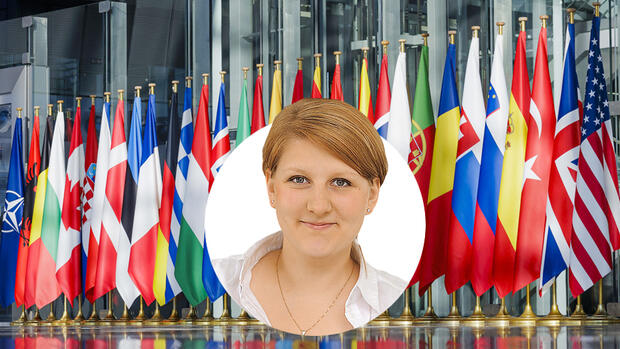The NATO summit, which begins in Vilnius on July 11, will be one of the most important in the history of the North Atlantic alliance. The focus is on the question: how do we deal with Ukraine? Since the Russian war of aggression, it has been clear that the security of Ukraine also affects the security of Europe. But how exactly it should be guaranteed in the future is controversial.
The first variant is the so-called “Israel model” or, more pictorially, the “porcupine model”. The idea is that a Ukrainian army that receives constant Western support and equipment is the country’s best guarantee of security while hostilities continue.
Similar to relations with Israel, the supporters would commit to providing formalized and long-term – say years, if not decades – support to Ukraine with arms and training. Armed like a “porcupine”, Ukraine would make it impossible for Russia to annex the country. A strong Ukraine could also deter future attempts by Russia to launch a new attack.
The second model is the NATO membership perspective. Theoretically, since the Bucharest NATO summit in 2008, Ukraine has promised to become a member at some point. In reality, however, this has so far meant: on “Santa’s never-ending day”.
Of course, NATO membership is out of the question as long as active military operations are still taking place in Ukraine. Because the consequence would be that Article 5 – the mutual assistance clause – would apply. Deploying Western troops to Ukraine would pose a very high risk of catastrophic NATO-Russia escalation.
>> Read here: Key points of the counteroffensive: Ukraine is attacking on these seven sectors of the front
However, it is quite conceivable that Ukraine could already be promised that it would be able to join NATO without further delay after the end of the war. Some European NATO countries support this.
West Germany was admitted to NATO in 1955.
(Photo: REUTERS)
Opponents argue that the Israel model is the only realistic option. Because the promise of NATO membership for Ukraine after the end of the war reduces any incentive for Putin to enter into negotiations or to stop hostilities. They argue that Ukraine’s NATO membership represents a red line for the Kremlin that must not be crossed.
In fact, however, it reiterates pre-war arguments that have proved obsolete. For many years there were warnings about a concrete NATO perspective for Ukraine. Because this could provoke Russia to take military action against Ukraine.
Now Russia has done just that, with no membership on the table – and in so doing has itself reduced the red line suspected by the West to absurdity. And as far as possible negotiations are concerned, Putin has so far shown no signs of serious talks.
There are many reasons not to put off Ukraine’s NATO membership, but to combine both options.
In other words: to agree on a security pact à la Israel with a promise of accession after the end of the war. Without a NATO perspective, the “Ukraine question” will never be answered once and for all for Vladimir Putin and all his successors in his mind.
The defense issue is also important for Europe
As long as Ukraine is not part of the security alliance, the country will remain in a gray area forever. Even if Putin cannot win the war, it will be a temptation for all his successors to keep trying and atone for the shame of “then”. The war could go on for years, if not decades.
For Europe, too, the question is whether a situation in which Ukraine, like Israel, has to defend itself under constant attacks and is exposed to constant risk is the solution the EU wants for its immediate neighbourhood. It would be a stark contrast to the successful, peaceful and prosperous model of EU and NATO enlargement for Poland, the Baltic States and other Central and Eastern European countries after 1990.
It is surprising that it is Germany and the USA in particular who are reluctant to hold out the prospect of NATO membership after the end of the war. France has meanwhile switched sides and is now supporting this.
Especially in view of their own history, this resistance is astonishing. West Germany was admitted to NATO in 1955.
Europe was successfully stabilized by the admission of the Central and Eastern Europeans into NATO, promoted by the USA. The right historical moment is now. The lack of political will could be regretted in the future.
The author: Liana Fix is an expert on German and European Russia policy and a Fellow at the Council on Foreign Relations (CFR) in Washington, DC.
More: India is a partner of purpose, not an ally
